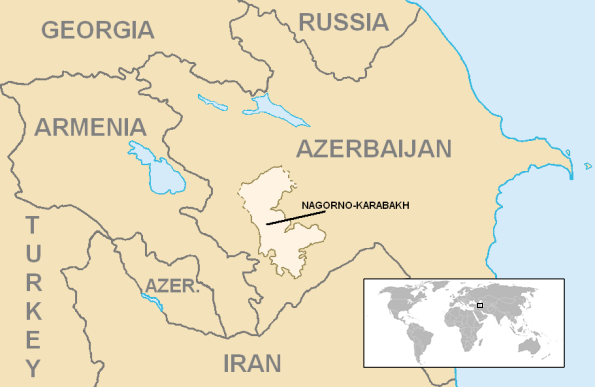
The Republic of Armenia on Sept. 16 instituted proceedings against the Republic of Azerbaijan at the International Court of Justice, the United Nations’ top judicial organ, over alleged violations of the International Convention on the Elimination of All Forms of Racial Discrimination (ICERD) by Azerbaijani authorities. In its application, Armenia contended that “for decades, Azerbaijan has subjected Armenians to racial discrimination,” including mass killings, torture and other abuses. Armenia also contended that these violations were directed at individuals of Armenian ethnicity regardless of their actual nationality.
Armenia further claimed that such practices have been pursued more aggressively since Azerbaijan’s aggression against the Republic of Artsakh (in the Nagorno-Karabakh enclave) in September 2020, during which Azerbaijan committed “grave violations” of the ICERD. It also contended that even after the end of hostilities, following a ceasefire which entered into effect on Nov. 10, 2020, “Azerbaijan continued to engage in the murder, torture and other abuse of Armenian prisoners of war, hostages and other detained persons.” The complaint charged that “Armenian cultural heritage has also been systematically destroyed, erased and falsified.”
Through its application, the Republic of Armenia has requested the Court to take provisional measures “as a matter of extreme urgency” in order to “protect and preserve Armenia’s rights and the rights of Armenians from further harm, and to prevent the aggravation or extension of this dispute” until it is able to decide the case on the merits. This includes the immediate release of all Armenian prisoners of war and hostages, measures to protect Armenian culture and dignity, and issuance of an order to close the Military Trophies Park in Baku, which has been criticized as glorifying war crimes. Under Article 74 of the Rules of Court, a request for such provisional measures “shall have priority over all other cases.”
The present dispute comes as a result of a Russian-brokered ceasefire in November 2020, following a six-week war that claimed more than 6,500 lives. The ceasefire was largely considered a victory for Azerbaijan, as it gave formerly Armenian-occupied territory back to Azerbaijan. These areas had been under dispute between Armenia and Azerbaijan since the early 1990’s, owing to the fact that they were located within Azerbaijan but made up of a majority ethnic Armenian population.
In a communique, the Azerbaijani ministry of Foreign Affairs indicated that it would launch its own legal proceedings against Armenia in relation to Armenia’s own systematic violations of CERD.
From Jurist, Sept. 19. Used with permission.
Map: Wikipedia




